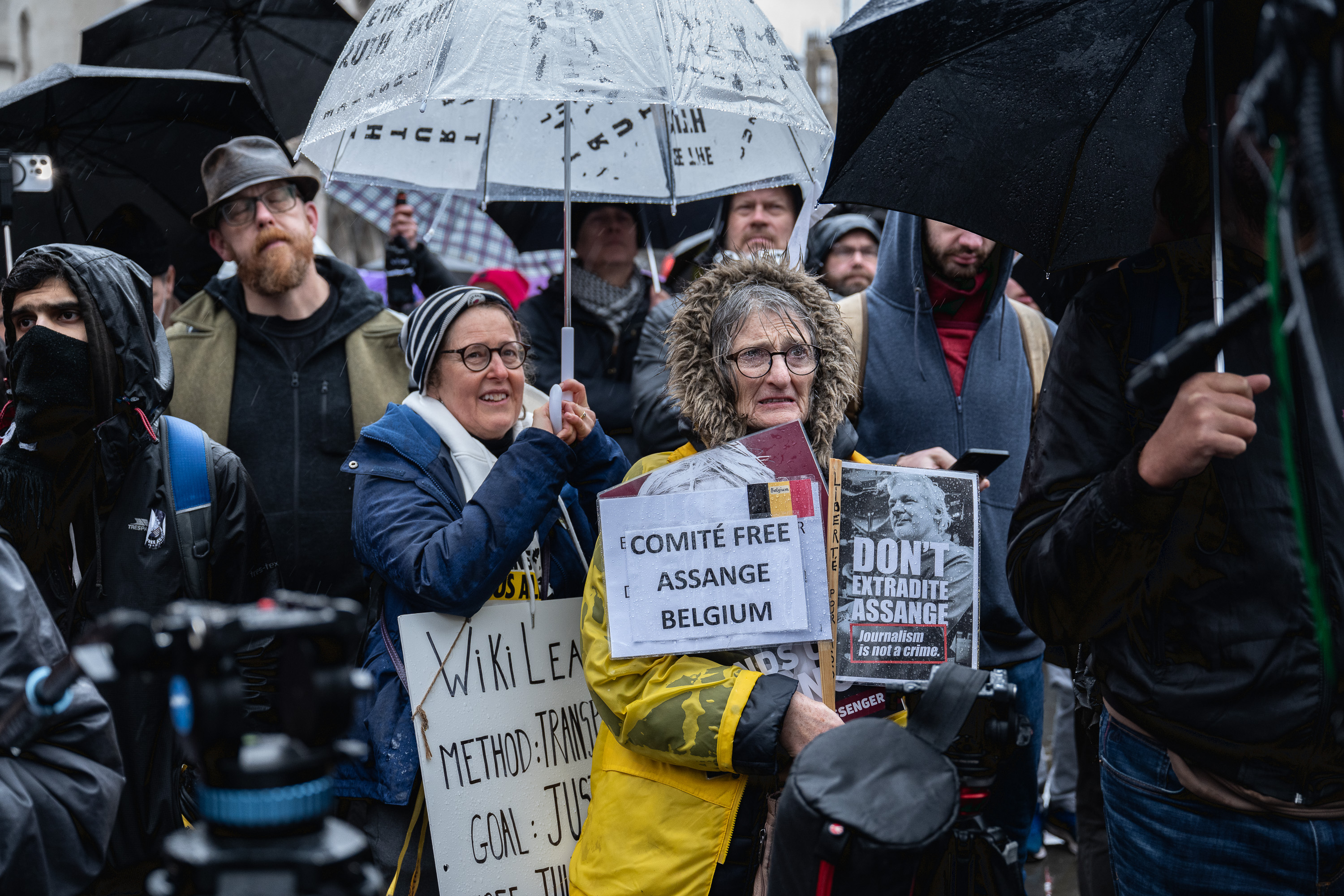Assange Court Report: February 21 - morning

Assange not a journalist or entitled to protection, lawyers for US Government tell court
Proceedings resumed this morning with the court hearing legal submissions from the prosecution concerning why WikiLeaks Publisher Julian Assange should be denied permission to appeal his extradition. As with the first day of hearing, Mr Assange was not in court.
Clair Dobbin KC for the Crown Prosecution Service, arguing on behalf of the United States, opened by telling the court that Assange could not be considered a journalist and the affidavit submitted by the US addressed every aspect of the defence arguments. “The charges might be unprecedented but what he did was also unprecedented,” she said. After some minutes, Judge Sharp announced a pause of the proceedings because it was necessary to make sure that people in Court 3 could hear them.
According to Dobbin, Mr Assange’s actions were different from a journalist’s in that he solicited the bulk disclosure of secret documents, was complicit to Ms. Manning’s theft of classified information and also responsible for ‘indiscriminately and knowingly’ publishing that information.
WikiLeaks is ‘an organisation that advertises itself as soliciting illegally obtained material,’ the KC said; adding that the defence arguments related to Article 10, protecting freedom of speech, cannot be considered valid. The second superseding indictment laid against Mr Assange just before the extradition hearing in the District Court put a different complexion on his conduct, showing his communications with hackers and soliciting disclosures from security agencies.
The key point, she said, is not just the content of journalistic stories but rather in the methods journalists use to produce them. It’s about the “lawfulness of their conduct,” she said.
Responding to another argument out forward by Assange’s legal team yesterday, Ms Dobbin went on to question whether Chelsea Manning could really be considered a whistleblower. “The sheer extent of the indiscriminate nature of the disclosures that Ms Manning made” of national defence material, in contravention of the duties she had as a member of the US military, would surely rule that out, she said.
One point that attracted the judges’ attention was the issue of what protections Julian Assange would have in the United States. One of the witness statements the US Government had provided to the District Court questioned whether Assange would be entitled to First Amendment protections should he find himself in an American courtroom.
In an interjection a the end of the session, Mr Justice Johnson suggested that this was clearly relevant to the prohibition of discrimination included in the 2003 Extradition Act: “The test is not that he would be prejudiced, it is that he might be prejudiced on the grounds of his nationality”. He then asked if was possible to prove that a foreign national is entitled to the same rights as a US citizen. Dobbin could not identify any evidence that was relevant to this point.
The case continues.